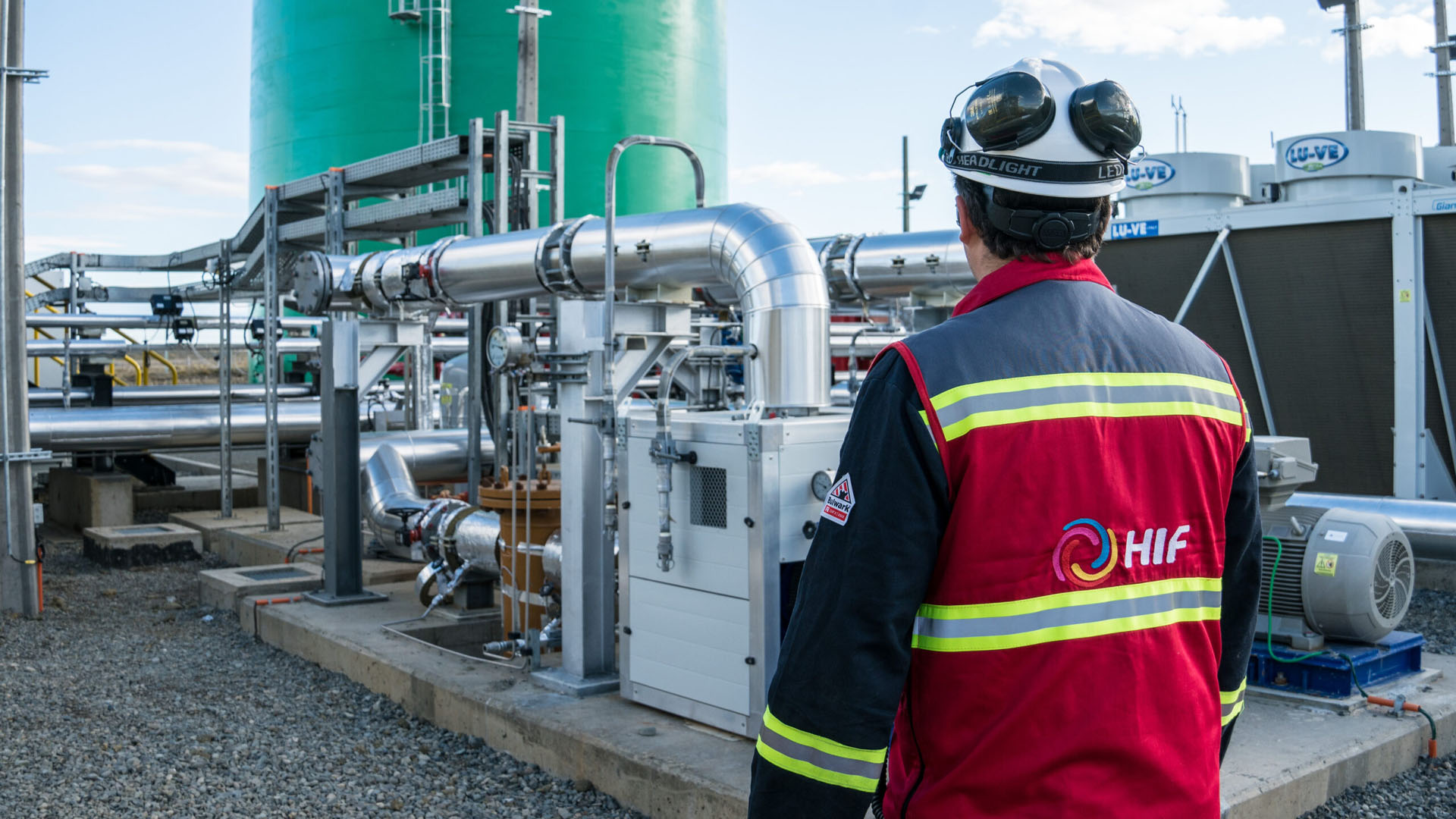

Porsche-backed HIF Global has received approval to begin construction of the world’s largest e-fuels production facility in Texas. This campus will be the company’s second after its pilot site in Chile and will eventually produce enough hydrogen-based fuel for 400,000 cars. It will be the first commercial-scale e-fuels plant in the world, a vital step toward proving that the technology has legs.
The company’s small site in South America produces a minuscule amount of e-fuel exclusively for Porsche, using renewable energy and carbon dioxide captured directly from the atmosphere. It’s unclear where HIF Global’s new facility in Matagorda, about two hours south of Houston, will get its energy, or its carbon, for that matter. The company has stated its hydrogen will be sourced through electrolysis—Matagorda is on the Gulf Coast—though the use of renewable energy is essential for e-fuels to make sense from an environmental perspective.

The sort of e-fuels HIF Global produces are drop-in compatible with regular gasoline-powered cars. This means no new vehicle has to be built to use it, which is a boon to its sustainability. Electric vehicles, efficient as they may be, produce far more carbon when they are manufactured as compared to gasoline-powered cars because of the dirty battery production process. That being said, e-fuels are not an efficient way to use energy. As Hydrogen Insight notes, it takes 100 kilowatt hours of energy to create just 13 kilowatt-hours worth of e-fuel which will be burned at low efficiency. For reference, a single gallon of gasoline contains around 33.5 kWh of energy. EVs, on the other hand, use about 77 kWh of that theoretical 100 kWh of energy. If an excess of renewable energy is available, though, the actual carbon impact of using e-fuels is negligible.
HIF expects its fuel will eventually cost “less than €1 per liter,” but it’s prohibitively expensive at present. The fuel from the company’s Chile facility costs $55 per liter just to produce. In the near future, though, HIF says “as the production of e-fuels on an industrial scale with direct air capture becomes established, production of around €2 per liter can arise.” That would translate into a fuel price of around $9 per gallon, or in the neighborhood of European fuel prices. Compared to the high upfront cost of electrifying, that’s a price some in the United States may be willing to pay.
This announcement is huge for the rising tide of e-fuels. Porsche is a key investor in HIF, and other automakers are interested in the technology as well. Stellantis, for instance, has been testing many of its engines to run on the fuel, as its CEO Carlos Tavares isn’t sold on electrification, to say the least. The biggest boon to the technology, however, was when it got carved out of the EU’s internal combustion ban. Short of a stream of subsidies, that’s the best news proponents of the tech could’ve asked for.
Got a tip? Email us at tips@thedrive.com